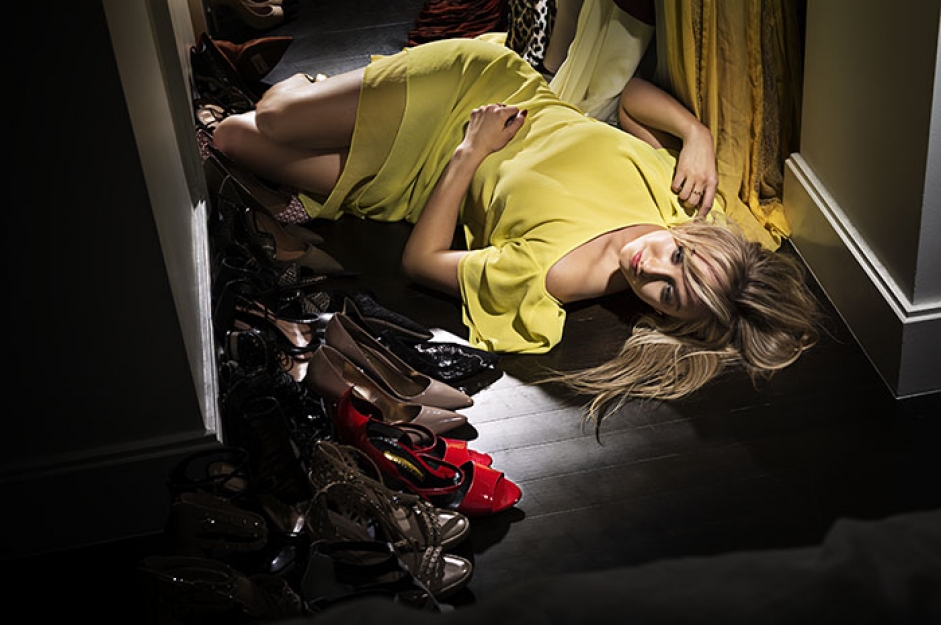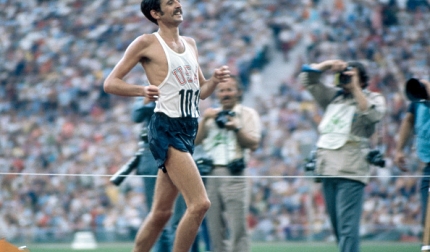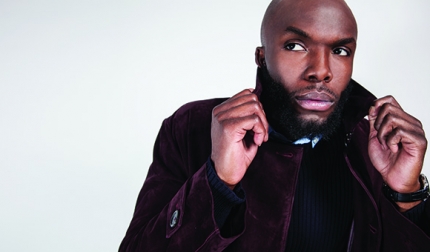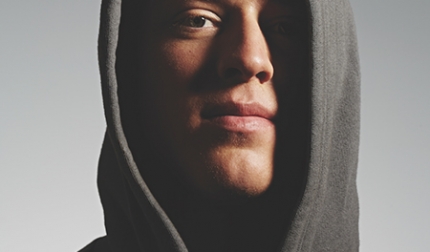To win an Olympic Gold Medal, to be the very best in your sport at age 19 is a daunting challenge. With so much of your life left to live, it’s harrowing to think that no matter what else you accomplish, the first line of your obituary has already been written.
At the 2012 US Olympic Trials for gymnastics, Nastia Liukin, the 2008 Olympic Gold Medalist in the women’s all-around, was preparing to qualify for a return trip to the Games in London.
“I was doing the bars, which is my best event,” she remembers. “There’s always more pressure on me for bars, because I usually have a point-and-a-half advantage over everyone else. As I was going through my routine, I face-planted in front of 20,000 people. For the first time in my career, I had a standing ovation. I thought to myself, ‘Why are these people cheering for me?’ That was a special moment. I started to realize that there is something inside of me besides Nastia Liukin: Gymnast. I was beginning to realize that not everything in my life was going to be defined by these moments in gymnastics. There was going to be more to my life than that.”
Liukin’s parents are a big part of the reason why she became the best gymnast in the world. Liukin’s father, Valeri, was a legendary gymnast himself, winning Gold at the 1988 Olympics in the team gymnastics competition and individual Gold in the horizontal bar. He also won Olympic Silver that year in both the all-around competition and the parallel bars. Nastia’s mother, Anna Kotchneva was an elite Soviet rhythmic gymnast, winning a Gold and two Bronze Medals at the 1987 World Championships before an untimely illness prevented her from qualifying for the 1988 Olympic Games. After the couple had their only child, Nastia, they wanted to open a gym to teach gymnastics to kids. Because many of the gyms in the Soviet Union were run by the government, the couple decided to emigrate to the United States to pursue their dream.
“My parents moved over to this country with nothing,” Liukin says. “They had a few suitcases, a baby (me), hardly any money and just a dream. We moved to New Orleans on the week of Mardi Gras. They didn’t speak any English. There was a moment when they got to New Orleans and saw Mardi Gras and said, ‘What are we doing here? This country is crazy!’”
After a year of coaching in New Orleans, the Liukin family was able to move to Dallas and open up a gym in Plano, Texas. “The gym in Plano would ultimately become my home,” Liukin says. “I spent more time there than I spent at home, because my parents couldn’t afford babysitters. They were in the gym 10 hours a day, seven days a week. I would play around on the side, trying to copy the older girls. I wanted to be like them. But my dad noticed that I was doing the things he was teaching better than the other girls were. He realized that I had this God-given talent at an early age.”
“But my parents talked and they didn’t want me to do gymnastics. They knew how hard it was on so many levels—injuries, sacrifices, commitments, failures, and disappointments. I was their only child, and they just wanted me to be happy. But for me, being happy was being in that gym, being in a leotard, spending as many hours as I could in that gym. They knew I had talent, but once they realized how much passion I had for the sport, they said, ’OK, we’re not going to take this away from her. She was given this talent for a reason. And if she wants to do it, she’ll do it, but we’ll never push her into it.’”
At age nine, Liukin won the all-around state championship in Texas. By 12, she was a member of the Junior National Team. After winning back-to-back junior titles and back-to-back senior titles, the 2008 Olympics seemed within reach. “My teammate, Carly Patterson, who I trained with, won the all-around at the Games in 2004. I was like, ‘OK, this is possible.’ You see one of your best friends do it. You train in the same events, the same hours, the same gym. It really made me believe.”
The year before the Olympics in Beijing, Liukin had one of her toughest seasons to date. “At Nationals, we competed in eight routines, and I think I fell six times,” Liukin remembers. “A few days before New Year’s in 2008, my dad was driving me home from the gym and said, ’You know what? Whatever happens, let’s not have any regrets. Let’s give it all we’ve got.’ So he completely changed my training program and my strength and conditioning plan. I was dying. I was training harder than ever. My dad was such a planner; we had put these routines together that he compared to everyone else’s routines—their scores, their start values. He told me, ‘If you just do these four routines, you don’t have to do them amazing, just stay on the beam, stay on the bars, and there’s no way you can lose.’ The first half of 2008, I wasn’t at my best. I had a fall here, a fall there. But he kept showing me the scores. ‘Look! If you don’t fall, you win!’ So he made me believe it was possible.”
The night before her all-around competition at the 2008 Games, Liukin dreamed that she performed without a fall. She even stuck her landing on the vault, something she consistently had trouble with in competition. As she dreamt of hugging her dad in victory, her eyes opened with her arms extended in that embrace. “I couldn’t believe it,” Liukin said. “I wanted it to be real.” Later that evening, it became real. Liukin hit every routine just the way she had dreamt the night before. She won the Gold Medal for Team USA, becoming only the third American woman in history to win the all-around Olympic Gold. That moment would change her life forever.
After not qualifying for the 2012 Olympic Team, Liukin was eager to begin the next chapter of her life. She decided even before the Olympic Trials that she would move to New York City in 2013 to attend New York University and pursue a degree in sports management. She joined NBC’s broadcast team to work on the Olympics coverage from London in 2012, and repeated her broadcast role in Sochi at the 2014 Winter Games. And, in addition to making the many appearances she does for the sport of gymnastics, she’s looking forward to working on producing more lifestyle segments for television.
“I’m willing to start from the ground up in broadcasting,” Liukin says. “I know that you don’t just walk in and be a co-host on the TODAY show. It takes years of preparation, something I think I know well. But once you’ve achieved a status in sports, people are like, ‘Are you sure you want to start at the bottom?’ But I’m willing to do what it takes to succeed.”
“I love gymnastics and all the amazing opportunities it has given me,” Liukin says. “The difficult part is that often times, people want you to continue to live in the past, to be the Gold Medalist. I’m so proud of what I’ve accomplished. But there’s so much more I want to do. I don’t want to be defined by gymnastics. I don’t define myself that way at all. But winning the Gold Medal has taught me something. If you set goals for yourself and work hard, you can achieve them. Now it’s time for a new set of goals.”
.








